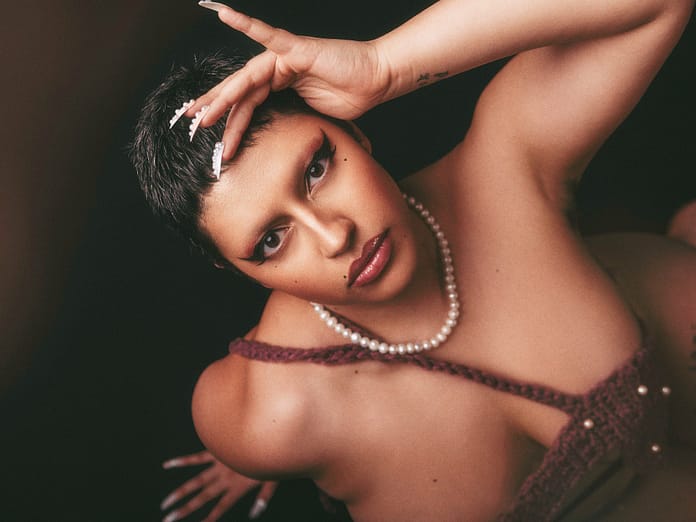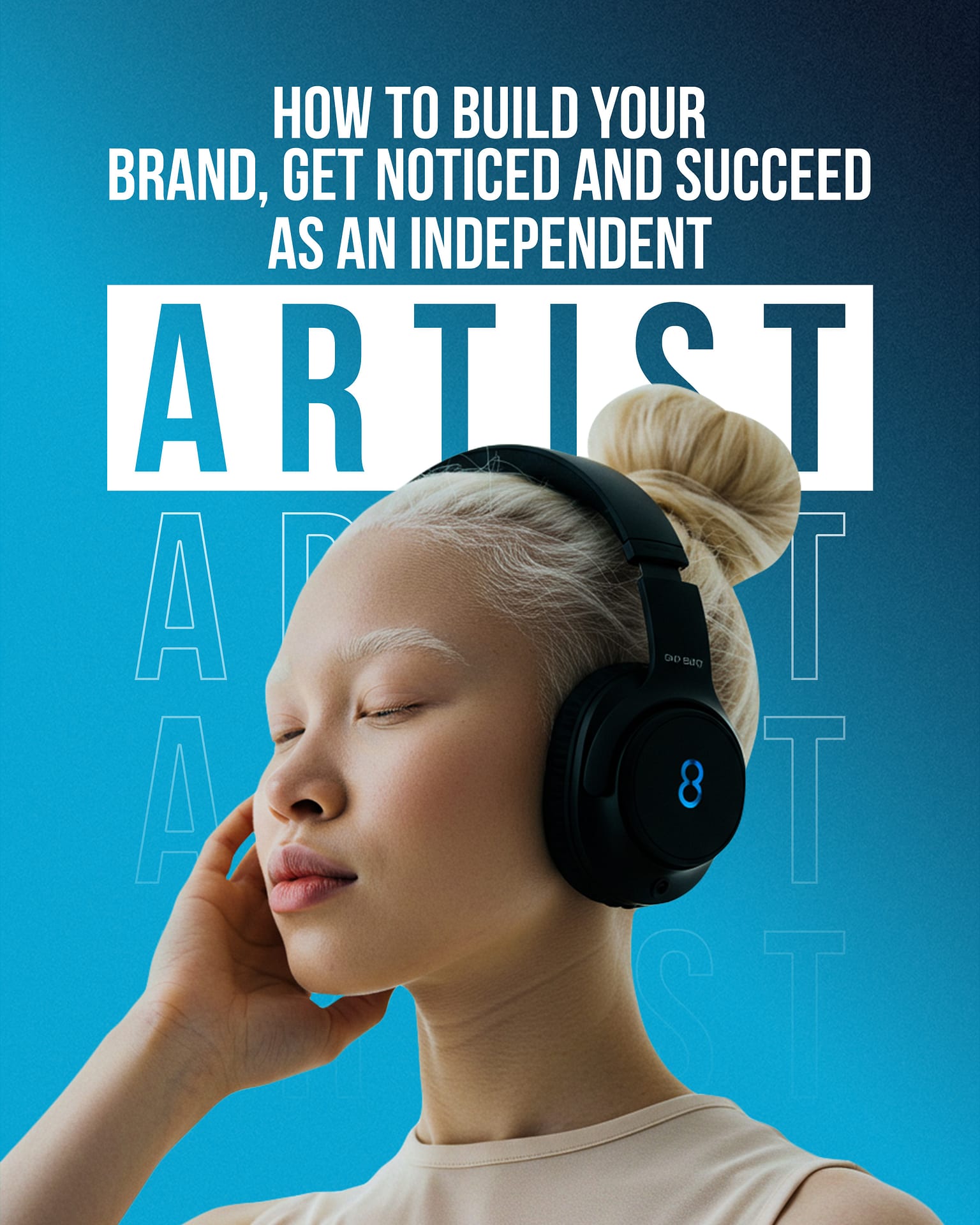From Tehran to Berlin, the Multi-Faceted Dornika Merges Sonic Landscapes with Activism in Her Latest EP, Revolution.
The music industry is a pulsating, lively ecology that is home to musicians that are always evolving and morphing, pushing conventions and stimulating imaginations.
This ecosystem is home to the music scene. Dornika stands out among them as a musician who has several talents and has an unusual presence and a captivating voice.
Dornika is a dynamic force in the developing LGBT underground scene in Berlin, where she now resides. Dornika is originally from Tehran, but she now calls Berlin her home. Not only does she straddle several genres with her drag alias Many Faced Godx, but she also defies the traditional binary of male and female with her performance.
The artistry that Dornika practises is inextricably linked to the political work that she does. She is leveraging her position as a pop singer to magnify essential causes, such as women’s rights and the Iranian women-led revolution, by making songs that are not only captivating musically but also mirror social solid narratives. She is doing this by employing her platform as a pop musician.
Her auditory investigations cover a broad variety of ground, which serves as evidence of her adaptability. Jazz, hip-hop, pop, Iranian folk, voguing rhythms, techno, and experimental electronic music are just some of the numerous musical genres that she draws inspiration from to create her ever-changing soundscapes.
Her most recent extended play, titled “Revolution,” is an excellent illustration of the varied nature of her work. The EP is a complex tapestry of sounds that complements her extensive body of work, and it encompasses a broad range of musical influences, from the house and US garage to soaring electronic pop and edgy experimental electronica.
However, “Revolution” is much more than simply a demonstration of Dornika’s musical flexibility; rather, it is an in-depth investigation of both individual and communal experiences.
The songs, which are personal and cover a wide range of issues, discuss anything from the autonomy of the human body to migration, the healing of generational traumas, and the current revolution in her native Iran.
Dornika shows herself as an artist of substance as she progresses through her creative path. She is an artist who can expertly combine music with social commentary, and who is not hesitant to use her voice to bring attention to important topics.

Her music is a demonstration of the potential of art as a vehicle for social transformation, as well as a clarion call for equality and justice.
Dornika is a much-needed breath of fresh air in a music world that is frequently overrun by transient fads. She is a musical chameleon, fusing sonic creativity with activism, and she is a musical chameleon.
While you listen, let the varied soundscapes that Dornika creates excite your senses and stimulate your thoughts.
What kick-started your songwriting journey?
We studied a lot of old Iranian poetry in school growing up and there’s so much attention to detail and perfect rhymes and flow along with this very philosophical and romantic way of writing.
I really admire Persian poetry and feel it inspires my songwriting somehow even when I write very pop and simplistic lyrics. I started writing songs in my bedroom in my grandparent’s house as a teenager and was my getaway from the world around me.
What’s the most thought-provoking piece you’ve ever written?
I would say Meditate.
Where’s your creative sanctuary?
The last physical place was my childhood bedroom in Tehran. I feel now I’ve learned to carry it inside myself so wherever I feel inspired and focused is my creative sanctuary.
What would you say is your greatest strength as an artist?
My connection to my magic and inner being and my determination to make things happen. I believe in myself and my purpose to do what I’m here to do and that keeps me going.
What is your creative process when making music?
It’s always different and depends on the track. Sometimes I come up with a phrase or topic I want to talk about, other times I create the production and let myself improvise. I like collaborating with other artists a lot and combining worlds.
What inspired you to write your latest EP “Revolution”?
My main inspiration is the ongoing revolution in Iran. I felt I needed to use my voice to raise awareness, give energy and inspire as well as propose a pathway to a better world.
A lot of the songs are me going deep into my traumas growing up both in Tehran, California and moving to Berlin and coming to the conclusion that we need a global change that needs to start with our personal healing journeys.
I feel the personal and political are connected and we need empathy and space for healing as much as we need a collective movement and organized activism to create a world where we don’t repeat the same harm.
What are the things you do to help perfect your craft?
I grew up in a society that was very judgmental about what is good and what is bad when it comes to art. I struggled with a lot of perfectionism and self-criticism about my voice, my skills as a musician and also about my body.
The last years have been a journey to unlearn this and give myself space to be imperfect. I feel the more I healed from these absolute ways of thinking the more I flourished and found myself in my work.
That being said, what I think makes my craft as an artist perfect is being authentic and vulnerable with my audience, keeping myself feeling assured and calm which helps me sing better and also learning to let go and trust the flow, which makes me very good at improvising and writing songs on the spot.
Of course, there are always things to learn and I feel I have gained the most through doing. The more I perform and the more I create the better I get.
What are your plans for extending your music beyond Europe?
I would love to play and connect with people all over the world. I just don’t have a set plan lol. I kind of believe things will find me and eventually my work will take me everywhere. Just taking it step by step.
What’s the highlight of your career so far?
I don’t know if it’s a highlight but definitely, my favourite show that I played so far was at Munich Pride last year. The crowd was insane and it was amazing to see so many young queer babies singing along to my songs and being so aware and confident in their identities.
I had an amazing time and it was kind of unexpected in Munich. This year has already been wild though, I have 20 shows in the next 2 months and play at some of my favourite festivals and for the first time in Switzerland, Greece and Austria.
One I’m excited about is my show at Soho House Berlin on the 8th where I’ll be celebrating my EP release on the rooftop with new songs and my dancers on the poles.
What are your plans for your music and your brand?
After Revolution and the tour this summer, I have a lot of new songs coming out with some beautiful music videos that I’m excited to share!
I have an album in the works and hope to release it this winter. It’s very difficult as an independent artist, especially as a queer person from a global south country, to make the quality of work I want with the very few resources that I have.
I do everything for my brand myself, and everything in my career I have had to fight for, even to sing. So I hope to expand my team shortly and access the resources I need to give my brand the visibility it deserves and to make the work I dream of.
No matter how big I get or not I will continue to work hard to make art I am proud of and bring something valuable to my listeners.

